-
Kim Kardashian: Hollywood

Glu Mobile The reality star’s smartphone game, released this summer, found its way to the top of the charts in the same way critics think Kim did: Kim Kardashian: Hollywood got famous for being famous. The game, which had sky-high reviews compared to the plummeting ratings of the Keeping Up TV franchise, reportedly made Kardashian nearly $100 million this year. As with Kim, the game drew a crowd of haters—including a mom of an 11-year-old gamer—alongside a crowd of die-hard Kim fans, even winning a batch of male admirers as the video game reminded everyone of the sheer power of the Kardashian brand.
-
2048

Gabriele Cirulli The mobile and online game was the brainchild of a 19-year-old Italian web developer who controversially drew from the objectives of similar sliding puzzles for his simple app: add together tiles of 2 and 4, and try to get to 2048. Unlike more sophisticated mobile games, 2048 was an instant sensation and logged millions of downloads in its first week. 2048 also has an open source code, which prompted other developers to create an endless stream of spinoffs in which the tiles’ numbers can be replaced with images.
-
Rooms
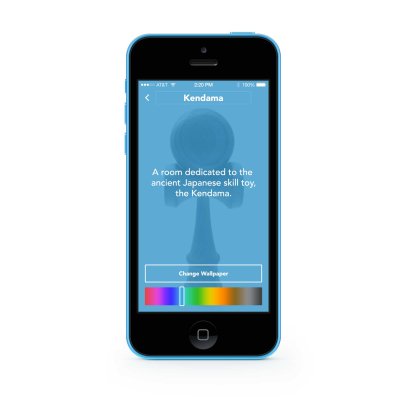
Facebook Facebook quietly launched its most mysterious product to date in October: a standalone social media app called Rooms, in which users join anonymous chat rooms to discuss common interests. Like Slingshot and Paper, Rooms was developed under a Facebook initiative to design more apps that facilitate new ways of communication. Still, the app faces substantial challenges in establishing a user base—it hasn’t yet cracked the Top 100 in the App Store—but it holds a special appeal in that what’s new about Rooms is decidedly old: a throwback to the early years of social networking, when everything was more anonymous yet somehow more personal.
-
PhotoMath

MicroBlink The magic calculator app shot to the top of the App Store in October after masses of mathematically-disinclined students were wooed by its futuristic abilities: users snap a photo of a math problem and PhotoMath outputs step-by-step solutions. While PhotoMath doesn’t yet support hand-written equations or high-level math topics, upgrades are in the works so that it can expand its user base beyond young students. A PhotoMath spokeswoman told TIME that educators have warmly welcomed the app, but its debut also reignited the debate on homework help and cheating.
-
Hinge
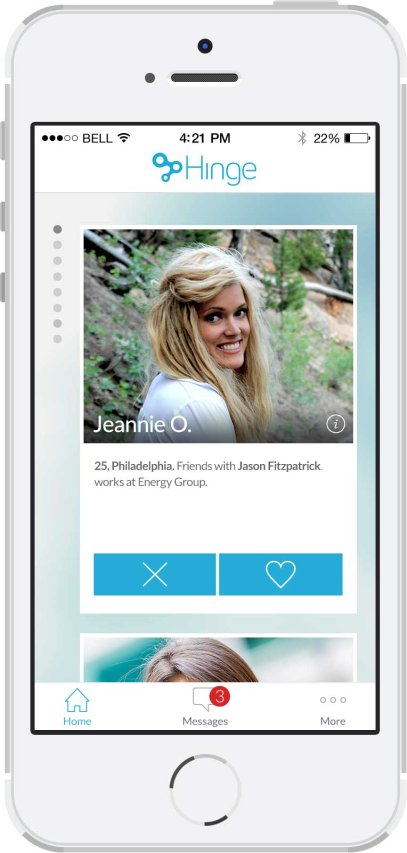
Hinge While the dating app was released last year, Hinge sparked a flame in 2014 as it spread to more and more cities around the U.S. The app provides “like” or “dislike” functions similar to its main competitor, Tinder, but it doesn’t just let anyone within a specified radius appear on your screen. Hinge’s matchmaking connects to your Facebook account to foster friend-of-a-friend connections, a novel concept in a sea of dating apps that prioritize immediate, nearby and mostly anonymous relationships.
-
Flappy Bird
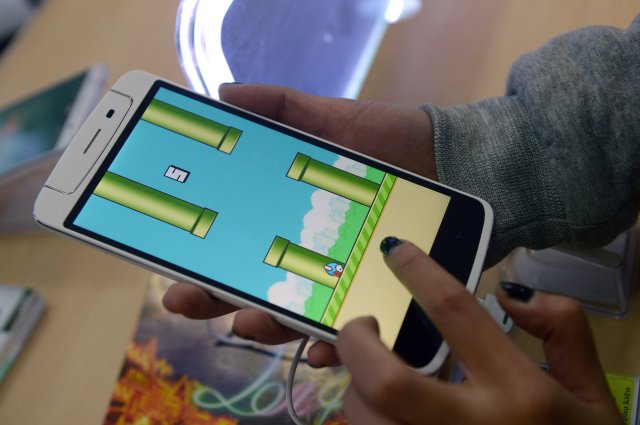
Hoang Dinh—AFP/Getty Images If there was one game that matched Candy Crush’s addictiveness, it was Flappy Bird. While the game was released in 2013, Flappy Bird flew to the top of the charts in early 2014 as millions of users around the world flocked to the game for its old-school interface and simple objective. In February, however, the game’s developer, Dong Nguyen, fittingly took to Twitter to make one of the year’s most upsetting and inexplicable announcements: that he “cannot take this anymore” and was discontinuing Flappy Bird, which then disappeared from the App Store. Almost immediately, iPhones that already had the game installed were listed on eBay for up to $100,000 while an endless stream of knockoff titles attempted to recreate the true Flappy Bird experience.
-
Venmo
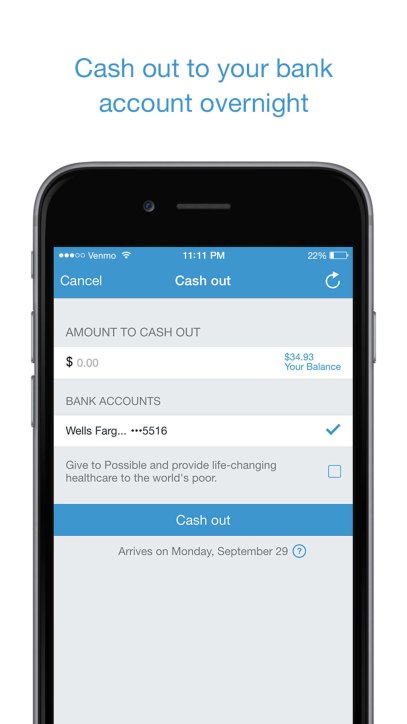
Venmo Venmo The mobile payment service used to split restaurant bills and eliminate IOUs took millennials’ smartphones by storm in 2014 after its parent company, Braintree, was acquired by eBay in late 2013. eBay CEO John Donahoe said in April that Venmo had “explosive growth on college campuses,” so much that the word “Venmo” is now being used as a verb—”just Venmo me”—following in the footsteps of Google, whose name is now a Oxford Dictionary-certified word.
-
WhatsApp
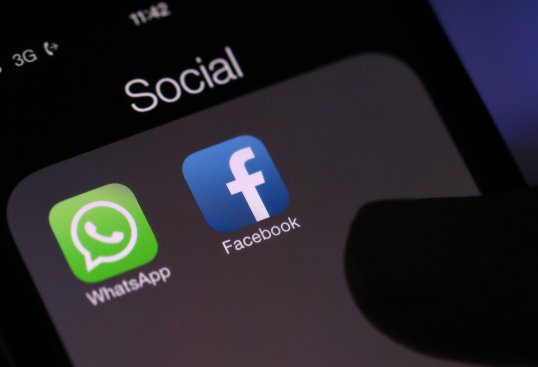
Getty Images The hugely successful messenger app reported over 600 million monthly users in August, up by 100 million since April, securing its position as the world’s most popular chat app. WhatsApp was acquired by Facebook in October for about $22 billion, on par with the value of Alibaba’s record-breaking IPO and vastly overshadowing Facebook’s $1 billion acquisition of Instagram, a move put into perspective by the WhatsApp purchase.
-
Uber
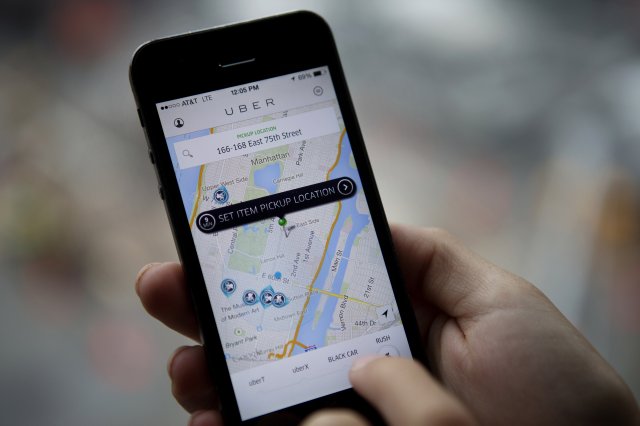
Victor J. Blue—Bloomberg/Getty Images The on-demand car service‘s popularity spike in 2014 didn’t arrive without a full tank of controversy. Numerous Uber critics in cities around the world, including London and San Francisco, staged protests against the service this year, making allegations about Uber’s anti-competitive policies and its lack of safety, though the demonstrations didn’t do much. The company, a $17 billion enterprise known for its special, limited-time perks, also made headlines after its primary competitor, Lyft, accused it of playing dirty and when its own employees protested over fare cuts.
-
Snapchat
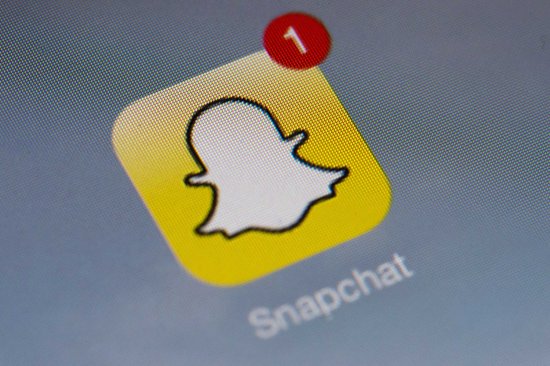
Lionel Bonaventure—AFP/Getty Images The self-destructing photo messenger has been a social media staple since 2012, but 2014 was a breakthrough year for the once-outlandish startup idea from three Stanford undergrads. Snapchat surged in popularity earlier this year, boasting over 700 million photos daily by May 2014, up from 20 million per day in 2012. And in the Facebook- and Twitter-dominated social media scene, Snapchat also shed its reputation as a second-tier player this year, scoring a mind-blowing $10 billion valuation in August and launching its first ads in a savvy monetization move in October.